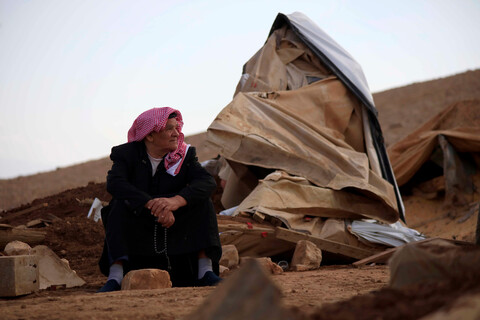The Electronic Intifada 1 August 2019
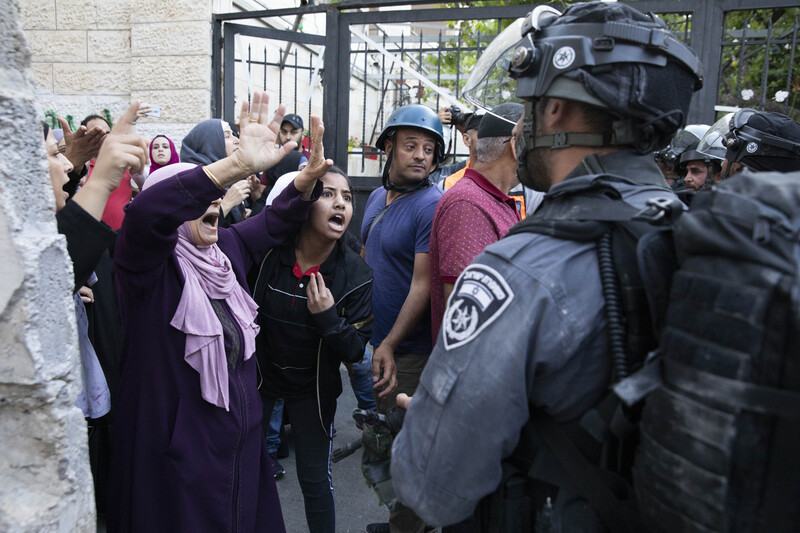
Palestinians in the East Jerusalem neighborhood of Issawiyeh confront Israeli occupation forces following the funeral of 20-year-old Muhammad Ubeid, shot and killed by Israeli police days earlier, on 1 July.
ActiveStillsIsraeli occupation forces shot and killed two Palestinians in Gaza during the month of July.
Hamas fighter Mahmoud al-Adham, 28, was killed in Beit Hanoun, in the north of the territory, on 11 July in what Israel said was a “misidentification.” Occupation forces opened fire on al-Adham as he attempted to prevent two Palestinians from approaching the Gaza-Israel boundary fence.
Ahmad Muhammad Abdallah al-Qarra, 23, died after being shot in the stomach during Great March of Return protests east of Khan Younis, southern Gaza, on 26 July.
More than 200 Palestinians have been killed during the protests along Gaza’s eastern and northern boundaries since their launch last year.
Seventy-four Palestinians have died by Israeli fire so far this year.
Six Israelis were killed by Palestinians during the same period, though Palestinian factions have repudiated Israel’s claims of a nationalist motive for an Israeli woman’s strangulation by a Palestinian man in February.
In addition, a Palestinian from the West Bank living in Ashkelon, southern Israel, died after his apartment was hit by a rocket fired from Gaza in early May.
Palestinian dies in Israeli detention
Also during July, Nassar Taqatqa, 31, died in Israeli detention.
Israeli occupation forces arrested Taqatqa at his home in Beit Fajjar, near the West Bank city of Bethlehem, on 19 June.
The Palestinian Human Rights Organizations Council stated its concern that Taqatqa may have been “tortured and exposed to ill and/or degrading treatment while he was in detention.”
Meanwhile, Israeli soldiers shot Abd al-Rahman Shtaiwi, 9, in the head in the northern West Bank village of Kafr Qaddum on 12 July.
Protests were winding down in the village at the time, though the child was not taking part in them.
“Scans show dozens of fragments in the child’s head resulting in serious brain damage, from which he is unlikely to recover, even if he survives,” according to Rupert Colville, spokesperson for the UN High Commissioner for Human Rights.
The boy “manifestly did not present an imminent physical threat” to Israeli occupation forces, Colville said.
In Jerusalem, Israeli forces began the demolition of some 100 apartments on the outskirts of the city’s occupied eastern sector.
Several buildings, many still under construction, were demolished on 22 July.
“Among those forcibly displaced or otherwise impacted are Palestine refugees, some of whom today are facing the reality of a second displacement in living memory,” the UN monitoring group OCHA stated.
Refugees in Lebanon protest
Palestinian refugees in Lebanon protested throughout the country in July after the government began to crack down on businesses employing foreign workers without permits.
Though they make up 10 percent of Lebanon’s population, Palestinian refugees, including those born in the country, are generally not granted citizenship.
UNRWA, the United Nations agency for Palestine refugees, called on Lebanon to facilitate Palestinians’ right to work.
“Being able to work in dignity, within the law and protected by the law, is a fundamental human right and constitutes a contribution to the Lebanese economy and national stability,” UNRWA stated.
The future of UNRWA, which provides services to 5.4 million Palestinian refugees, was thrown into doubt after the leaking of an internal ethics report alleging that top officials engaged in sexual misconduct and nepotism and other abuses of authority.
“Several countries have reportedly suspended contributions to UNRWA over the allegations,” the Associated Press reported.
UNRWA was already reeling from funding shortfalls after the US, which formerly provided around one-third of the agency’s $1.1 billion annual budget, suspended aid last year.
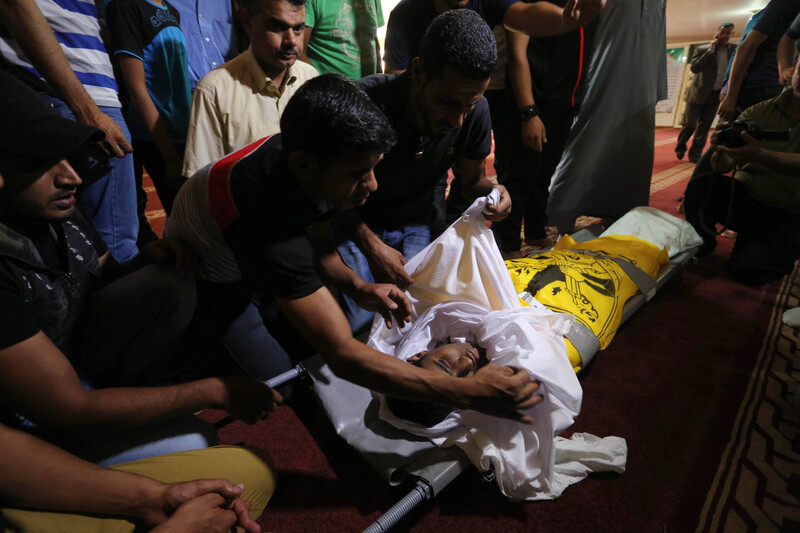
Relatives mourn over the body of Ishaq Ishteiwi, 15, during his funeral in Rafah, southern Gaza Strip, on 2 July. The teen was fatally injured by occupation forces as he attempted to cross into Israel for work in April and his body had been detained since then. Israel is currently holding the bodies of 11 Palestinians from Gaza, including three children, killed since the launch of the Great March of Return protests on 30 March 2018.
APA images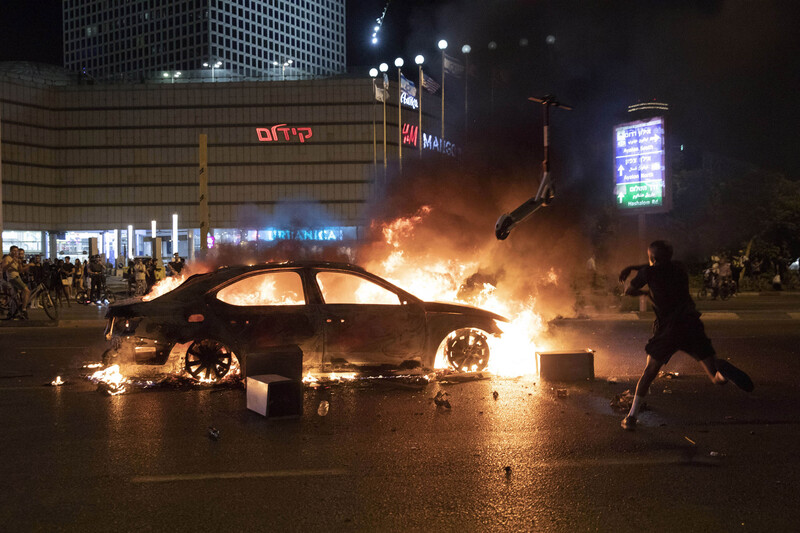
A protester throws an electric scooter toward a burning car during a protest in central Tel Aviv on 2 July. Riots erupted after Solomon Tekah, a 19-year-old of Ethiopian origin, was killed by an off-duty police officer in the city of Haifa.
ActiveStills
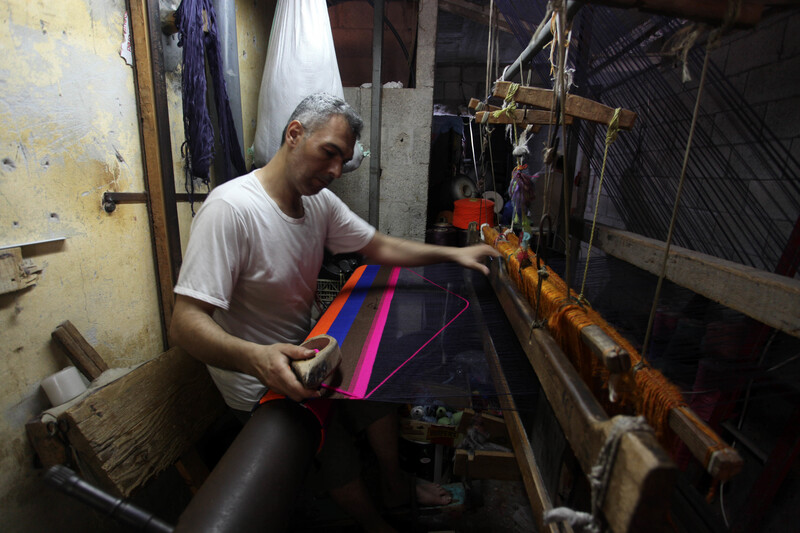
A Palestinian man weaves a wool carpet in a Gaza City workshop on 6 July.
APA images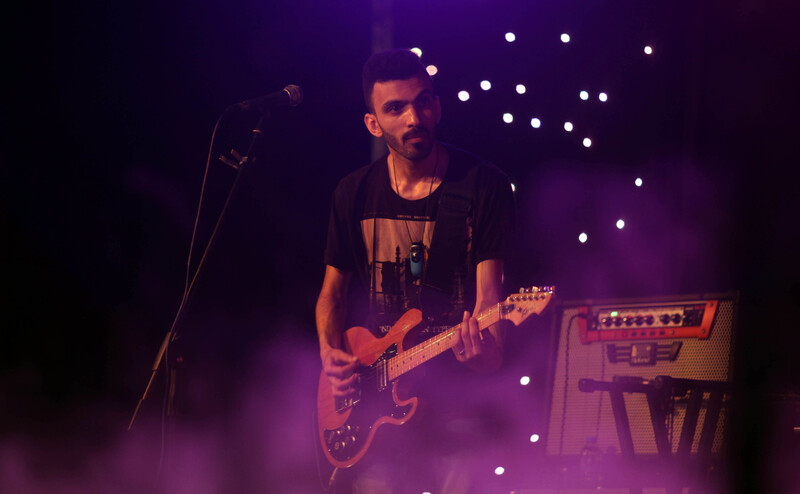
A Palestinian musician performs during the Palestine International Festival 2019 in Gaza City on 9 July.
APA images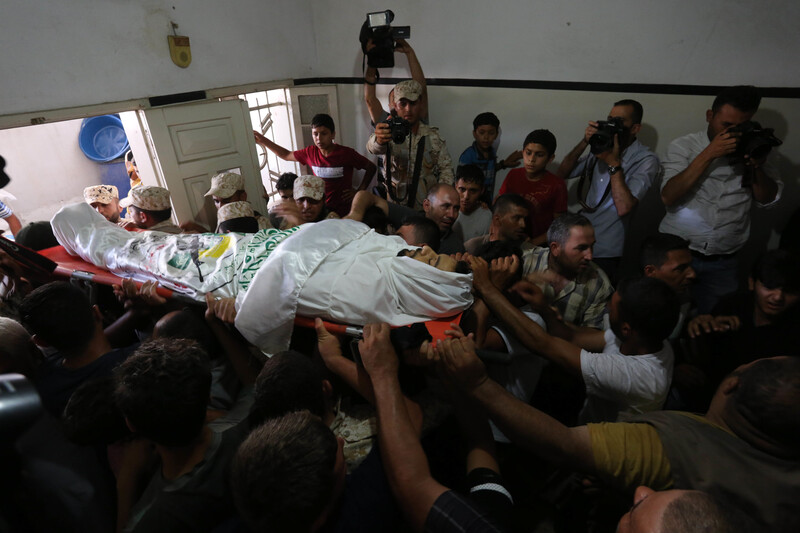
Mourners carry the body of Mahmoud al-Adham, 28, during his funeral in Jabaliya, northern Gaza Strip, on 11 July. Al-Adham was a Hamas fighter killed by Israeli forces reportedly while attempting to stop two Palestinians from approaching the Gaza-Israel boundary fence. Israel soon admitted to killing al-Adham by mistake.
APA images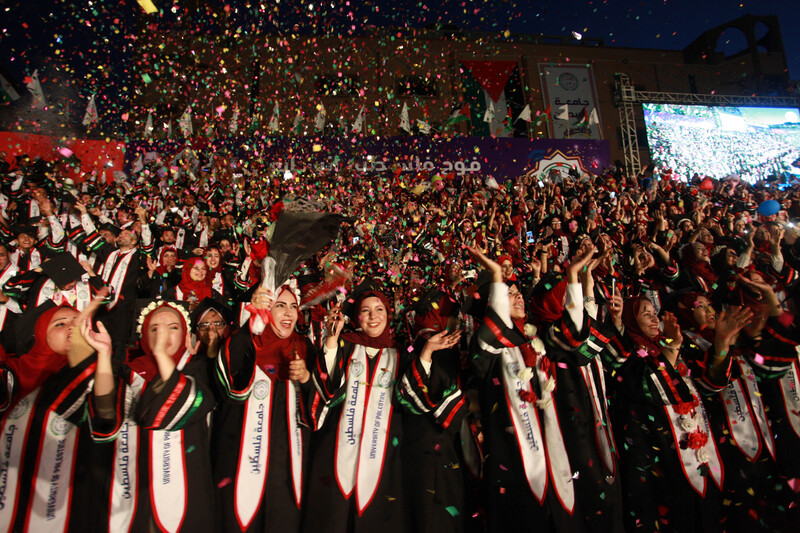
Palestinians celebrate their graduation at the University of Palestine in Gaza City on 13 July.
APA images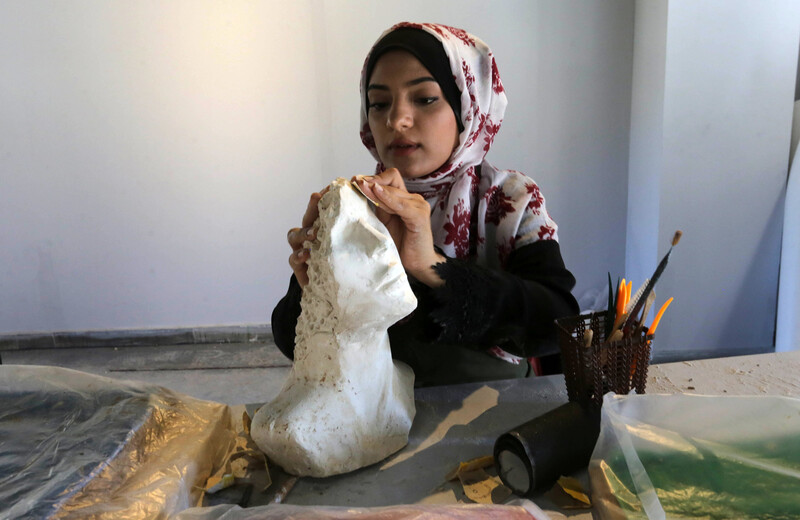
An artist works on a sculpture during a workshop at the Shababek for Contemporary Art center in Gaza City on 13 July.
APA images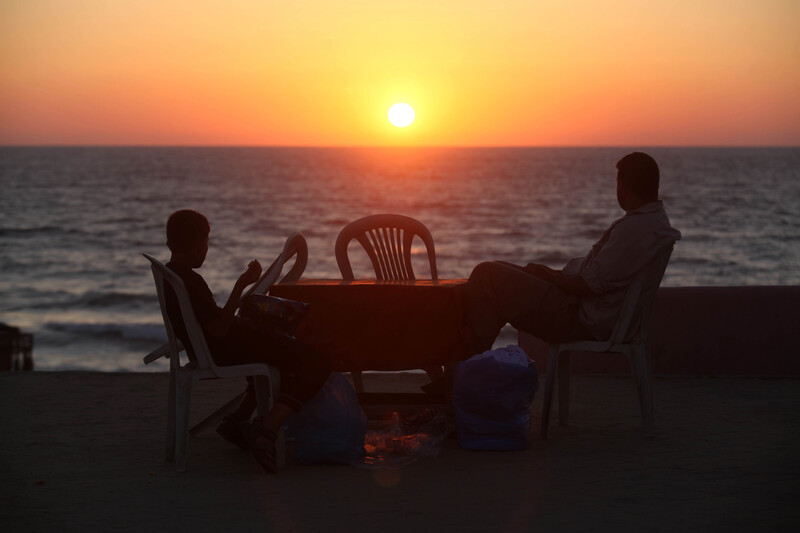
Palestinians enjoy the sunset over the Mediterranean Sea on the Gaza City coast on 14 July.
APA images
Palestinians protest in solidarity with prisoners held by Israel in front of the Red Cross offices in Gaza City on 16 July. The protest was held after the death of detainee Nassar Taqatqa, who had been held by Israel for less than a month. For the majority of his detention, he was held in the Russian Compound in Jerusalem, an Israeli detention center synonymous with the torture of Palestinian prisoners. Israel continues to hold Taqatqa’s body. Since the beginning of 2018, three Palestinians have died in Israeli prisons.
APA images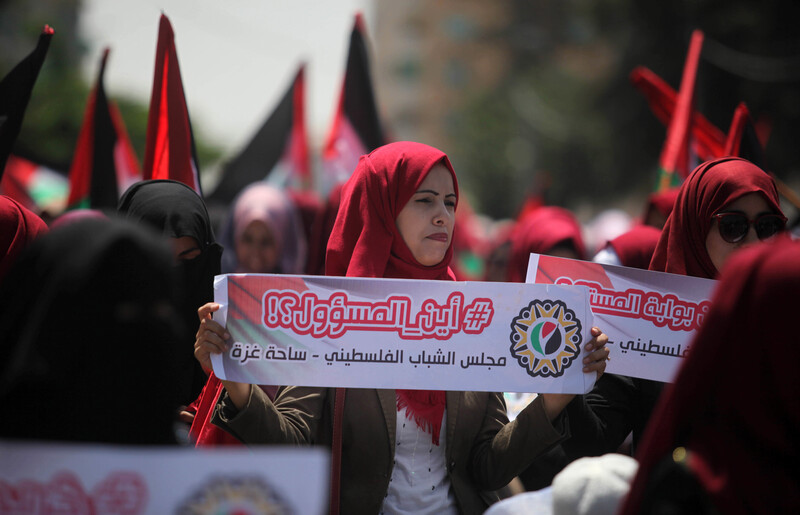
Palestinian university graduates protest outside the Ministry of Labor in Gaza City on 16 July. Unemployment among recent university graduates in Gaza stood at nearly 80 percent last year.
APA images
Palestinians argue with soldiers as Israeli occupation authorities demolish water wells in the so-called Area C of the West Bank city of Hebron on 16 July. Palestinians in Area C — the 60 percent of the West Bank under full Israeli military rule — are not allowed to build infrastructure without a permit, which are almost never issued by occupation authorities.
WAFA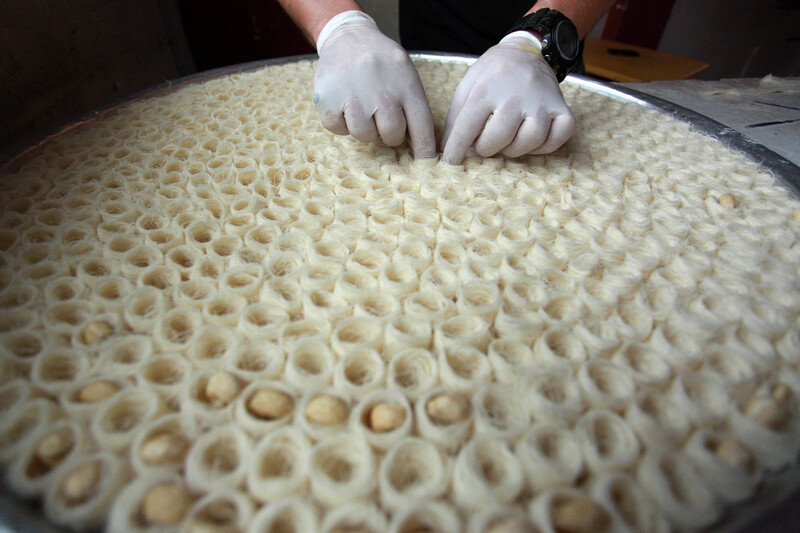
A worker in Gaza City prepares sweets ahead of the announcement of secondary school matriculation exam results on 17 July.
APA images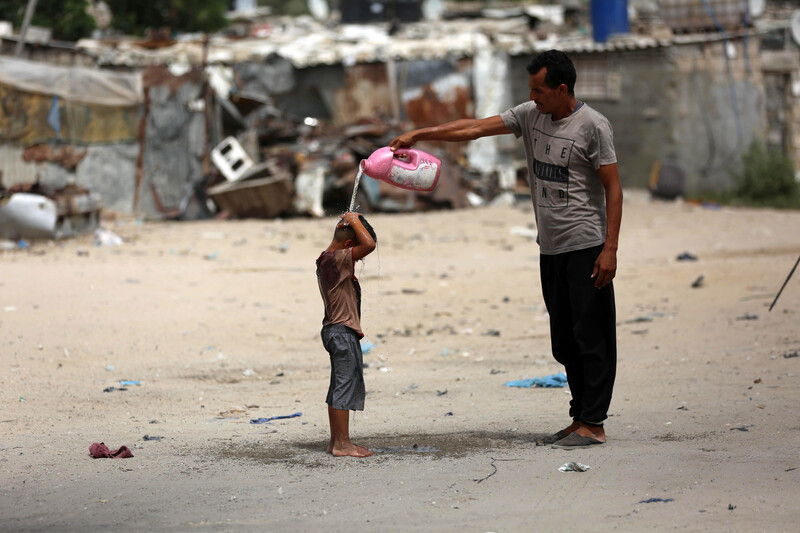
A Palestinian man pours water on his son during a heatwave at the outskirts of Khan Younis, southern Gaza Strip, on 17 July.
APA images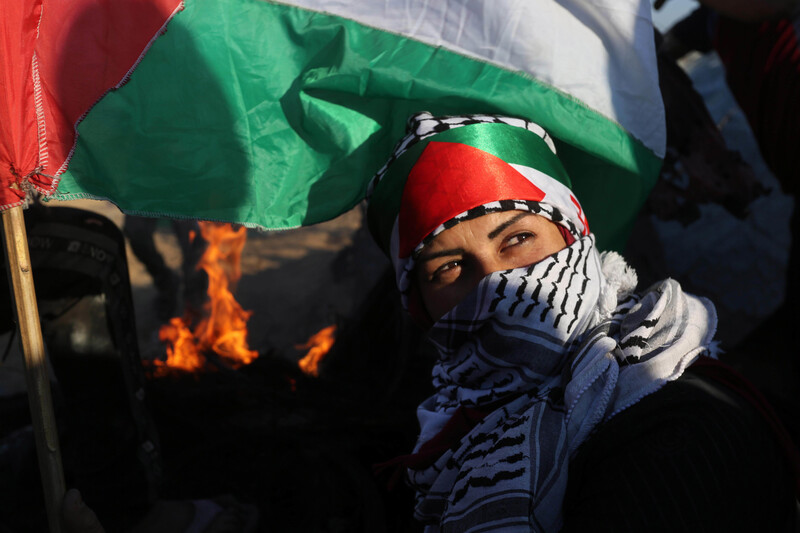
Palestinian protesters confront Israeli occupation forces during Great March of Return protests in Khan Younis, southern Gaza Strip, on 19 July.
APA images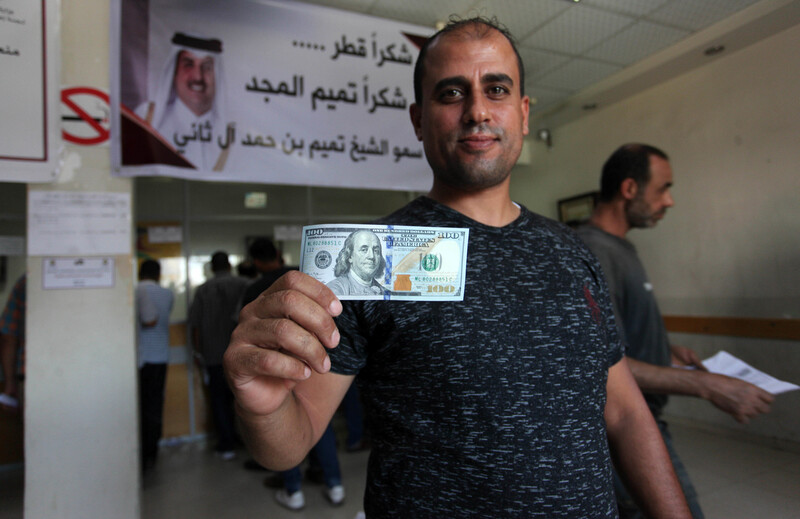
Palestinians receive financial aid from Qatar at the Gaza City post office on 21 July.
APA images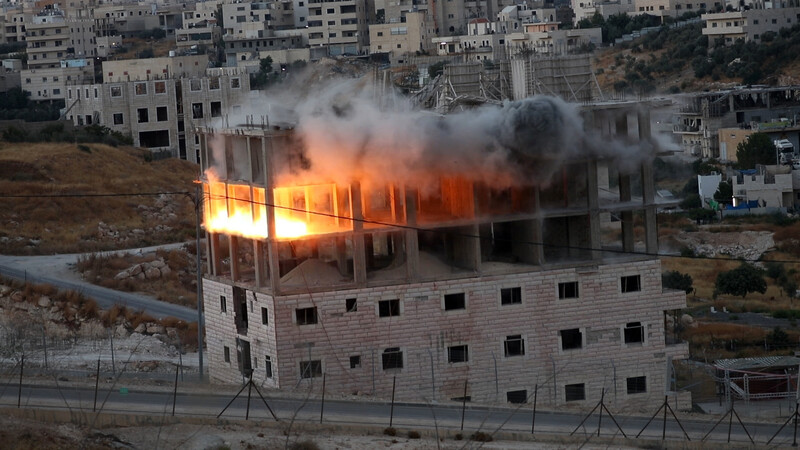
Israeli occupation authorities demolish a Palestinian building under construction in Sur Bahir, East Jerusalem, on 22 July. Israeli forces demolished several buildings in the Wadi Hummus neighborhood of the village, displacing 17 Palestinians. Israel’s defense ministry ordered Palestinians to evacuate the buildings under the pretext that they were too close to its separation wall and therefore a “security threat.”
APA images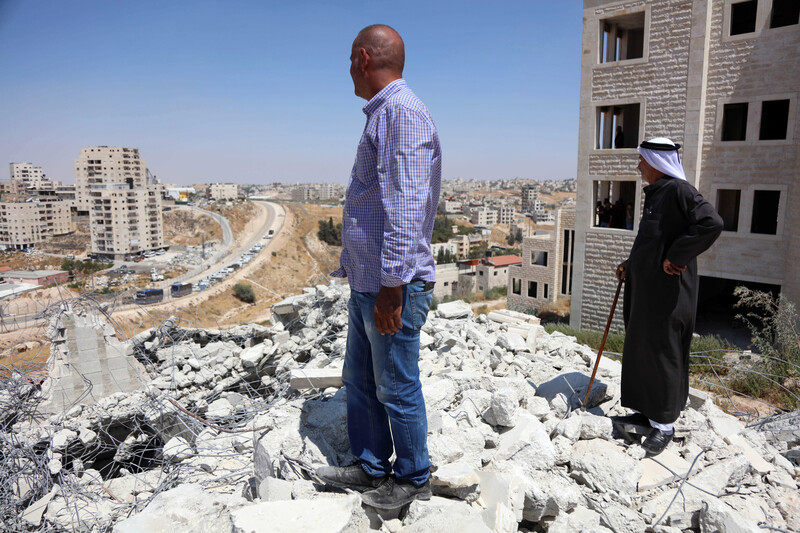
Palestinians stand on the ruins of a building after it was demolished by Israeli occupation forces in Sur Bahir, a village near East Jerusalem, on 22 July.
APA images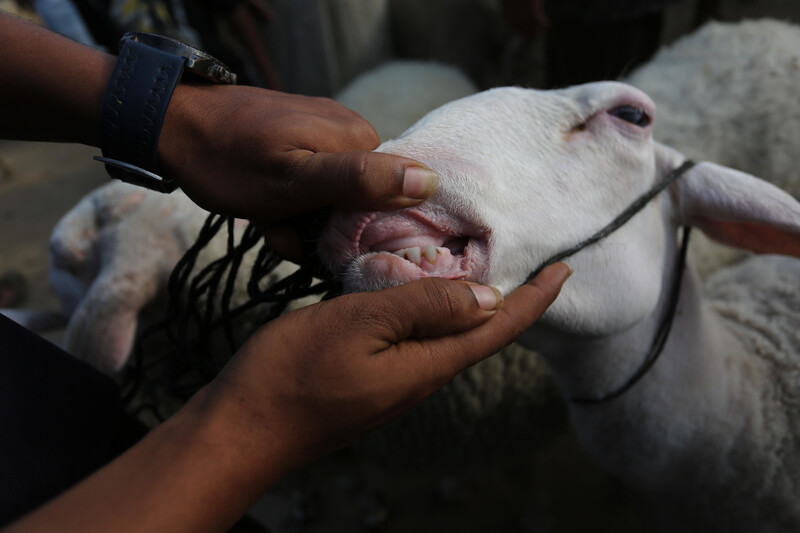
A sheep is inspected at a livestock market in the central Gaza Strip on 24 July, ahead of Eid al-Adha or Feast of the Sacrifice.
APA images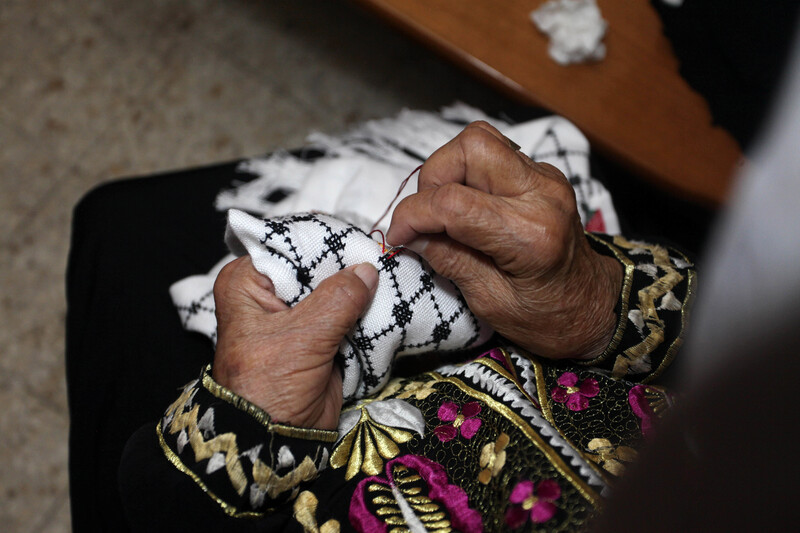
A Palestinian woman does traditional cross-stitch embroidery during a Gaza City workshop on 25 July, ahead of Palestinian National Costume Day.
APA images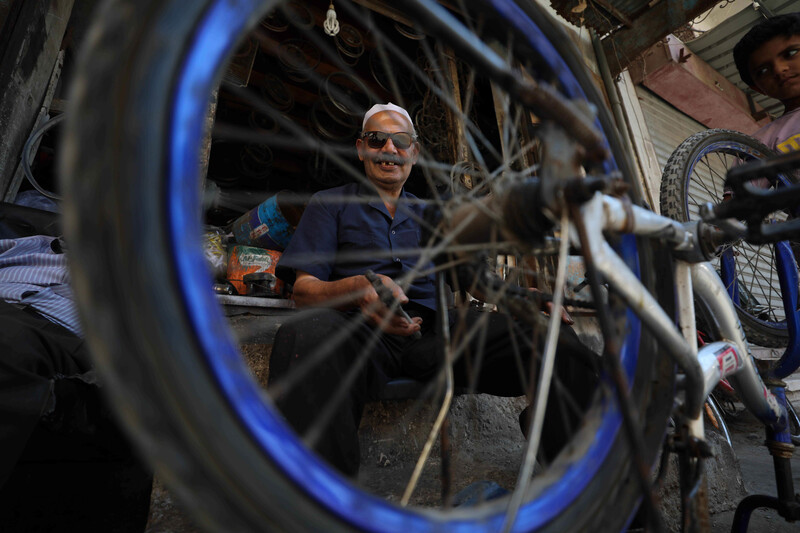
A Palestinian man fixes a bicycle at his Gaza City shop on 27 July.
APA images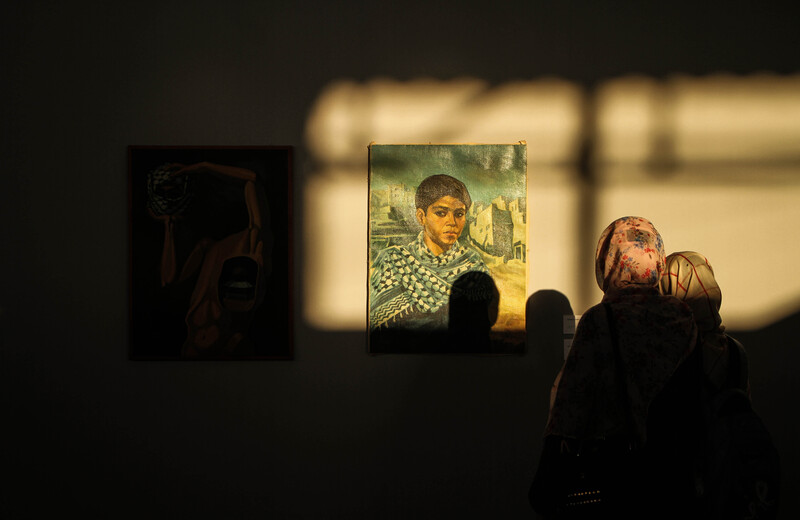
Palestinians attend an art exhibition titled Contemplative Contrasts organized by the General Union of Cultural Centers in Gaza City on 30 July.
APA images
